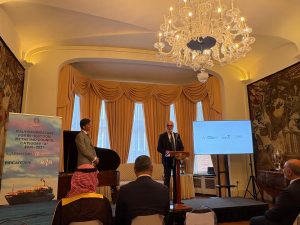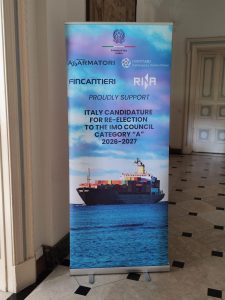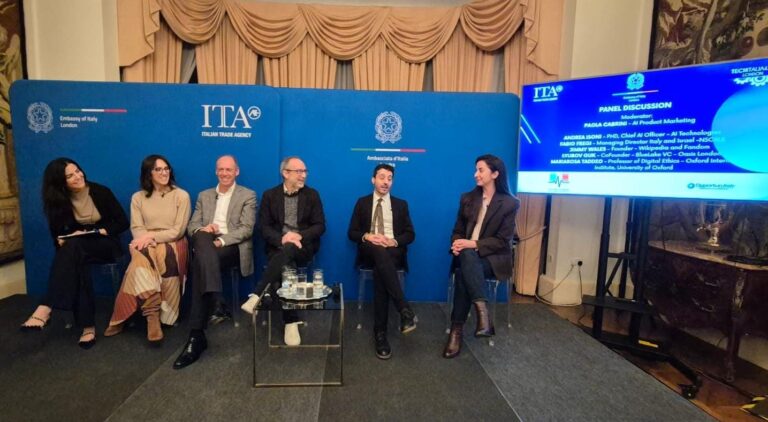London, 26 June 2025 – The official ceremony for the presentation of Italy’s candidature for re-election to Category “A” of the International Maritime Organization (IMO) Council for the 2026–2027 term was held at the Embassy of Italy in London. The event marked a key moment of maritime diplomacy and reaffirmed Italy’s central role in the global maritime governance system.
The event was opened by H.E. Inigo Lambertini, Ambassador of Italy to the United Kingdom and Permanent Representative of Italy to the IMO, IMSO, and IOPC Funds, who highlighted the country’s deep-rooted connection to the sea and its active, constructive role within the IMO since 1957.
“The Italian maritime sector holds strategic importance for our economy and makes a significant contribution to our international trade,” stated Ambassador Lambertini, emphasizing that “since its inception, Italy has been a founding member of Category ‘A’ of the IMO Council, a testament to our unwavering commitment to promoting safer, more secure, and environmentally friendly global maritime transport.”
Ambassador Lambertini outlined Italy’s priorities in navigation safety, environmental sustainability, technological innovation, the protection of seafarers, and the promotion of multilateral cooperation in the maritime sector.
Also in attendance was IMO Secretary-General Arsenio Antonio Domínguez Velasco.
The event brought together numerous representatives from IMO member states, diplomatic figures, naval attachés, international port authorities, and a delegation from the Italian maritime industry.
Organizations such as Assoarmatori, Confitarma, RINA, and Fincantieri demonstrated the dynamism and expertise of Italy’s maritime system, known for its excellence in shipbuilding, port management, intermodal transport, and international maritime services. Italian companies shared concrete examples of investments in innovation and sustainability, aligning with the IMO’s strategic goals.
During the presentation, an Aide Mémoire was shared, highlighting the strengths of Italy’s candidature, including:
- Italy’s central role as a Mediterranean maritime hub where global trade routes intersect;
- European leadership in Ro-Ro transport and the cruise industry (handling 40% of Mediterranean cruise traffic);
- Strong commitment to the ecological transition, including investments in alternative fuels, emissions reduction, and marine biodiversity protection;
- Ongoing attention to human life at sea (SAR), maritime transport digitalization (National Maritime Single Window, e-Navigation, VTS), and cybersecurity;
- Qualified contribution to international maritime training, especially regarding the revision of the STCW Convention;
- Firm support for the IMO Member State Audit Scheme (IMSAS) and audits based on Goal-Based Standards.
With over 12 million GT of registered gross tonnage, Italy ranks among the top 20 merchant fleets in the world. The country has a strategic port network, featuring 16 core ports in the TEN-T network, and leads in port and on-board digitalization and automation, actively supporting the development of Maritime Autonomous Surface Ships (MASS).
Italy’s candidature to Category “A” of the IMO Council is not just a recognition of a longstanding, competent commitment to international maritime affairs — it is also a forward-looking declaration of intent.
Italy aims to remain a responsible, innovative, and proactive actor, supporting the IMO’s core principles: safe navigation, protection of the marine environment, freedom of the seas, and international cooperation.
With a clear vision focused on the blue economy, digitalization, and sustainability, Italy is ready to contribute to building a more efficient, safe, fair, and resilient global maritime system. The candidature is an opportunity to strengthen international dialogue and promote maritime governance capable of meeting the challenges of our time.












